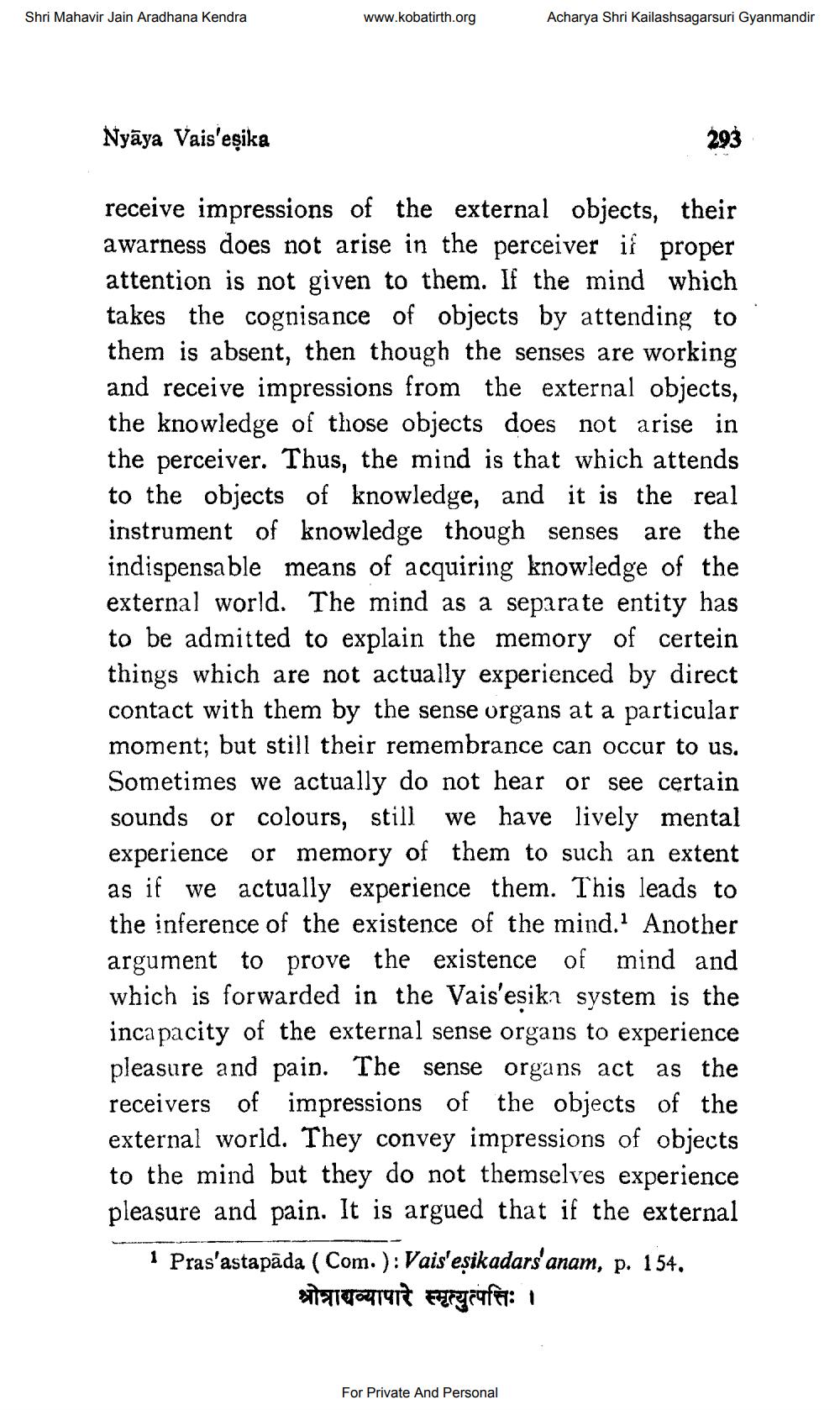________________
Shri Mahavir Jain Aradhana Kendra
www.kobatirth.org
Acharya Shri Kailashsagarsuri Gyanmandir
Nyāya Vais'eşika
receive impressions of the external objects, their awarness does not arise in the perceiver is proper attention is not given to them. If the mind which takes the cognisance of objects by attending to them is absent, then though the senses are working and receive impressions from the external objects, the knowledge of those objects does not arise in the perceiver. Thus, the mind is that which attends to the objects of knowledge, and it is the real instrument of knowledge though senses are the indispensable means of acquiring knowledge of the external world. The mind as a separate entity has to be admitted to explain the memory of certein things which are not actually experienced by direct contact with them by the sense organs at a particular moment; but still their remembrance can occur to us. Sometimes we actually do not hear or see certain sounds or colours, still we have lively mental experience or memory of them to such an extent as if we actually experience them. This leads to the inference of the existence of the mind.” Another argument to prove the existence of mind and which is forwarded in the Vais'esika system is the incapacity of the external sense organs to experience pleasure and pain. The sense organs act as the receivers of impressions of the objects of the external world. They convey impressions of objects to the mind but they do not themselves experience pleasure and pain. It is argued that if the external 1 Pras'astapāda (Com.): Vais'eșikadars'anam, p. 154.
श्रोत्रायव्यापारे स्मृत्युत्पत्तिः ।
For Private And Personal




